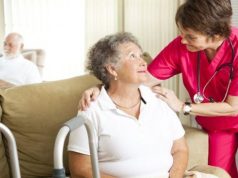Higher consumption of caffeine at midlife linked to reduced likelihood of physical frailty in later life among Chinese adults
By Elana Gotkine HealthDay Reporter
THURSDAY, Oct. 26, 2023 (HealthDay News) — Higher consumption of coffee and tea at midlife is associated with a reduced likelihood of physical frailty in late life, according to a study recently published in the Journal of the American Medical Directors Association.
Kevin Y. Chua, from the Yong Loo Lin School of Medicine at the National University of Singapore, and colleagues conducted a prospective cohort study using data from 12,583 participants from the baseline (1993 to 1998; mean age, 53 years) and third follow-up (2014 to 2017; mean age, 73 years) interviews of the Singapore Chinese Health Study. Habitual consumption of caffeine-containing beverages was assessed at baseline, and physical frailty was evaluated at the third follow-up.
The researchers found that those who drank four or more cups of coffee daily had reduced odds of physical frailty compared with nondaily drinkers (odds ratio, 0.54). Similarly, those who drank tea every day had reduced odds of frailty compared with those who hardly drank tea (odds ratio, 0.82). There was an association seen for total daily caffeine intake at midlife with a reduced likelihood of frailty at late life in a dose-response relationship. Participants in the highest versus the lowest quartile of daily caffeine intake had an odds ratio of 0.77. Lower likelihoods of being in the slowest quintile for timed up-and-go and the weakest quintile for handgrip strength were seen in association with higher caffeine consumption.
“Further studies are still needed to confirm these longitudinal associations, and to investigate if these effects on physical frailty are mediated by caffeine or other chemical compounds,” lead author Woon-Puay Koh, Ph.D., also from the National University of Singapore, said in a statement.
Copyright © 2023 HealthDay. All rights reserved.








